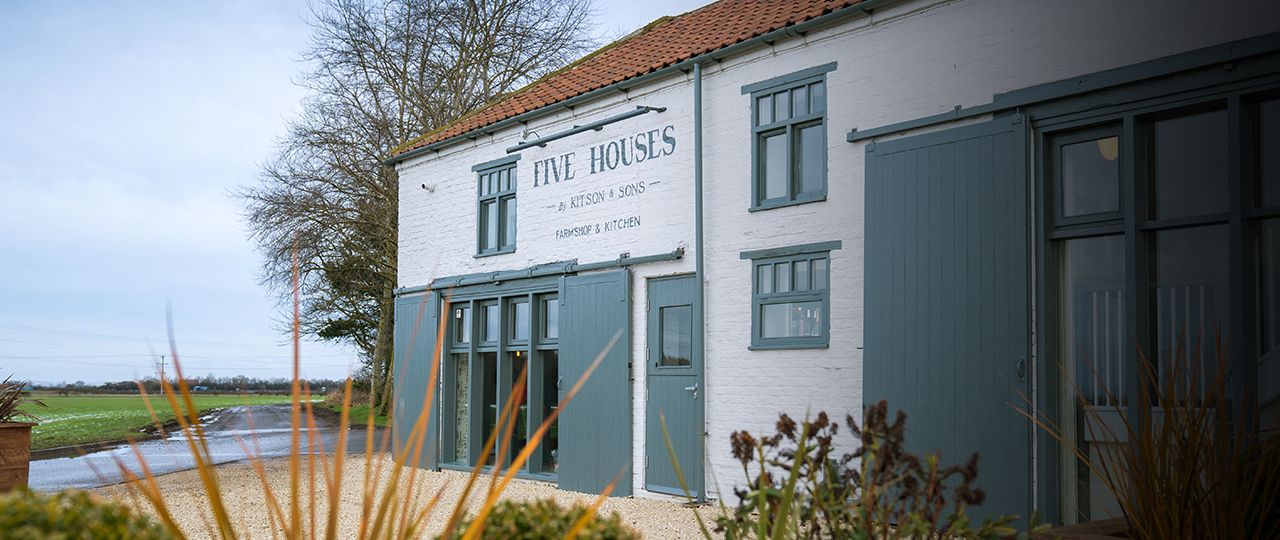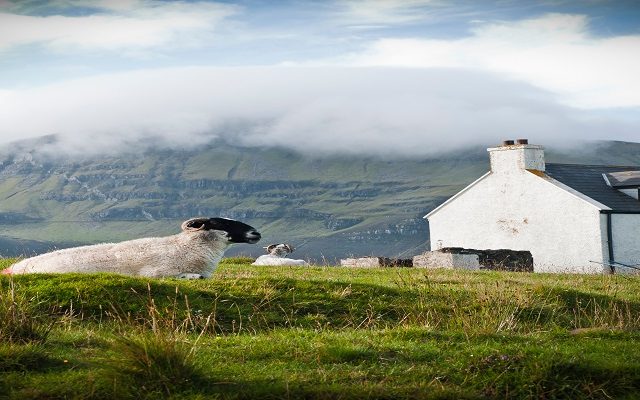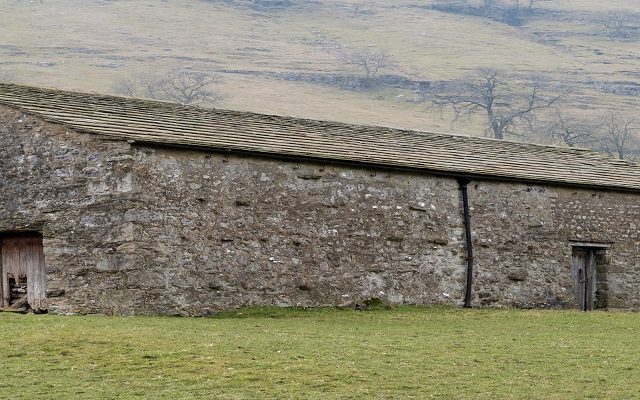Land Business | Why the Crathorne Estate places tenants’ quality of life above all else
The village estate of Crathorne in North Yorkshire places quality of life for its residents above all else – which made securing the perfect tenants for its pub and vacant commercial premises all the more important
When we meet, Thomas Dugdale’s face is already familiar. I had made the connection after earlier seeing the wall behind the counter in the post office in Crathorne, the village in the North Yorkshire estate his family has owned since 1844, and where he is the next generation to take on the stewardship.
Earlier, postmistress Sue Andrews had proudly chatted about ‘our Thomas, Katharine and Charlotte’ as she showed off photographs – pinned up behind the stamps and sweets – of Dugdale and his two sisters, alongside postcards sent from all over the world by the siblings’ father, Lord Crathorne. These family memories are cheek by jowl with others from the lives of residents, the yellowing newspaper cuttings radiating a sense of community.
But life here hasn’t always been a roses-around-the-door idyll. Like so many rural villages, Crathorne has had its testing times. The post office had been threatened with closure – Lord Crathorne was instrumental in the fight to keep it open – and five years ago, the village pub actually called time for what locals feared would be the last time.
Step forward Laura Fieldsend, who has been with Strutt & Parker’s Northallerton office for nearly 10 years – nine of them working with the Crathorne Estate.
‘We were all devastated when the Crathorne Arms closed, but the important thing was to dust ourselves down and do everything possible to secure another tenant,’ she recalls. ‘For the future of the estate community, a tenant needed to be found as soon as possible. But that’s not to say just any tenant; it had to be somebody who would understand how the pub and the village are intrinsically linked.
‘However, challenges like this one are the nature of my role – and with the changes around Brexit, having a diverse estate is more important than ever. Coming up with solutions and seeing businesses thrive is very rewarding.’
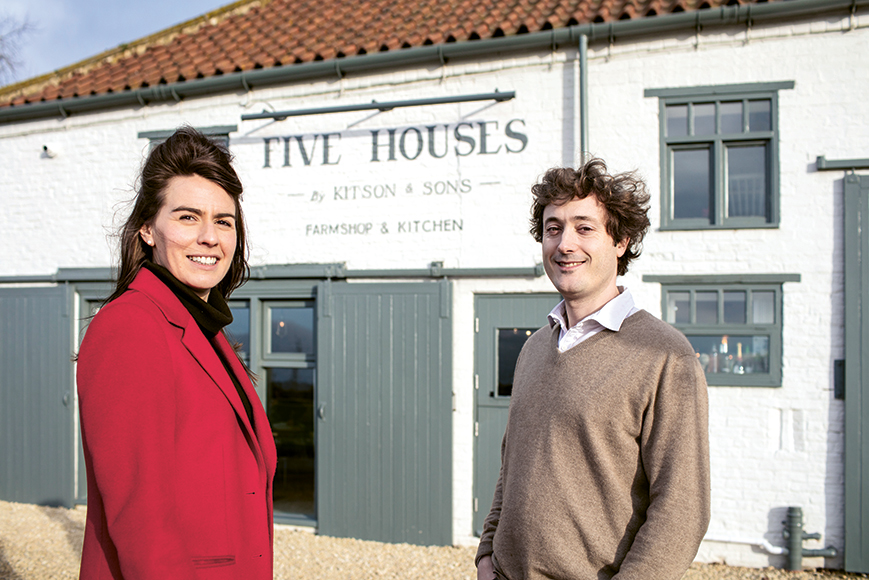
Heart of the community
One could be forgiven for presuming that, with their easy manner, Eugene McCoy and his wife Barbara have been behind the bar of the Crathorne Arms for years. The interior of the pub is an eclectic mix of colours and furnishings – Turkish rugs, country chairs and candelabras rub shoulders with pictures of Eric Clapton, Jimi Hendrix and Rod Stewart playing in the venue Eugene’s brother ran. But the thrown-together look belies a lifetime in the hospitality industry (including an Egon Ronay award for best restaurant). This venture hasn’t worked by chance.
‘The secret is to make everybody feel welcome,’ says Barbara, rearranging flowers left over from a local lady’s birthday party the night before. ‘From the farming lads having a pint at the bar in their muddy boots to the party of 12 booked in for dinner, they all have to be made to feel special.’
For Eugene, the ingredients of a successful pub are a combination of ‘a great village, great landlords and working hard’. There is a real rapport between him and Fieldsend, but behind the leg-pulling is a genuine appreciation of the role she played in getting the pub open again.
‘She couldn’t have done more to help us,’ says Eugene. ‘Whatever we needed, such as the new kitchen, we felt Laura was always there to listen. Together with Lord Crathorne and his son Thomas, she wanted us to succeed and understood that we needed to put our own stamp on the place in order to do that.’
The relationship between parties continues to evolve, with the pub often buying in surplus produce and game from the estate. ‘There’s a larder on our doorstep,’ says Eugene.
As the symbolic ‘big house’ on the estate is no more – Crathorne Hall, the Dugdales’ former family home, was sold in 1977 and is now a hotel – the McCoys’ efforts to make the pub the hub of the community seem even more vital. Initiatives such as carol singing around a 26ft Christmas tree (from the estate, of course) are helping to unite locals with paying visitors.

A family matter
Sipping a pint in the pub, Dugdale, 40, is enjoying having a few days ‘back home’ from his life as a lawyer in London. After a spell working in Hong Kong, he’s now much more visible here as the estate’s decision-maker, although Lord Crathorne remains involved.
‘My father always believed in me having – right from being a teenager – a seat at the top table,’ he says. ‘Over the years to come, the plan is to make the move up here permanently.
‘We have always followed the philosophy that, first and foremost, Crathorne needs to be a pleasant place to live and work. I believe very strongly that if we get this fundamental thing right, everything else follows.’
The family are not against change, but it must be for a reason rather than for its own sake. For example, in late 2015, the Dugdales helped tenant farmer Ian Tate move from Free House Farm, just behind the Crathorne Arms in the centre of the village, to another holding. Improved access and acreage has boosted the farm’s business, and planning permission has been granted to convert the former buildings into six new homes and seven guest rooms for the pub. The vision of Dugdale’s wife Alexandra, and her passion for building design, were instrumental in ensuring that the plans – by architect Aidan Hodgkinson – were approved.
‘Strutt & Parker’s expertise on this has been invaluable,’ says Dugdale. ‘It’s been one of those planning applications that’s gone on forever, but there is light at the end of the tunnel.’
He explains that the estate has a property portfolio of about 40 cottages: ‘Those who come into the new housing will breathe new life into the village. The work Eugene and Barbara have done at the pub helps make this the sort of place where people would like to live, making it easier to let our properties.’
The estate is very much a family affair: Lord Crathorne’s younger brother David farms here with his wife Susie, son Joe and daughter-in-law Sasha. They milk about 450 cows, farm 630 acres in their own right and contract farm a further 1,334 acres for the estate.
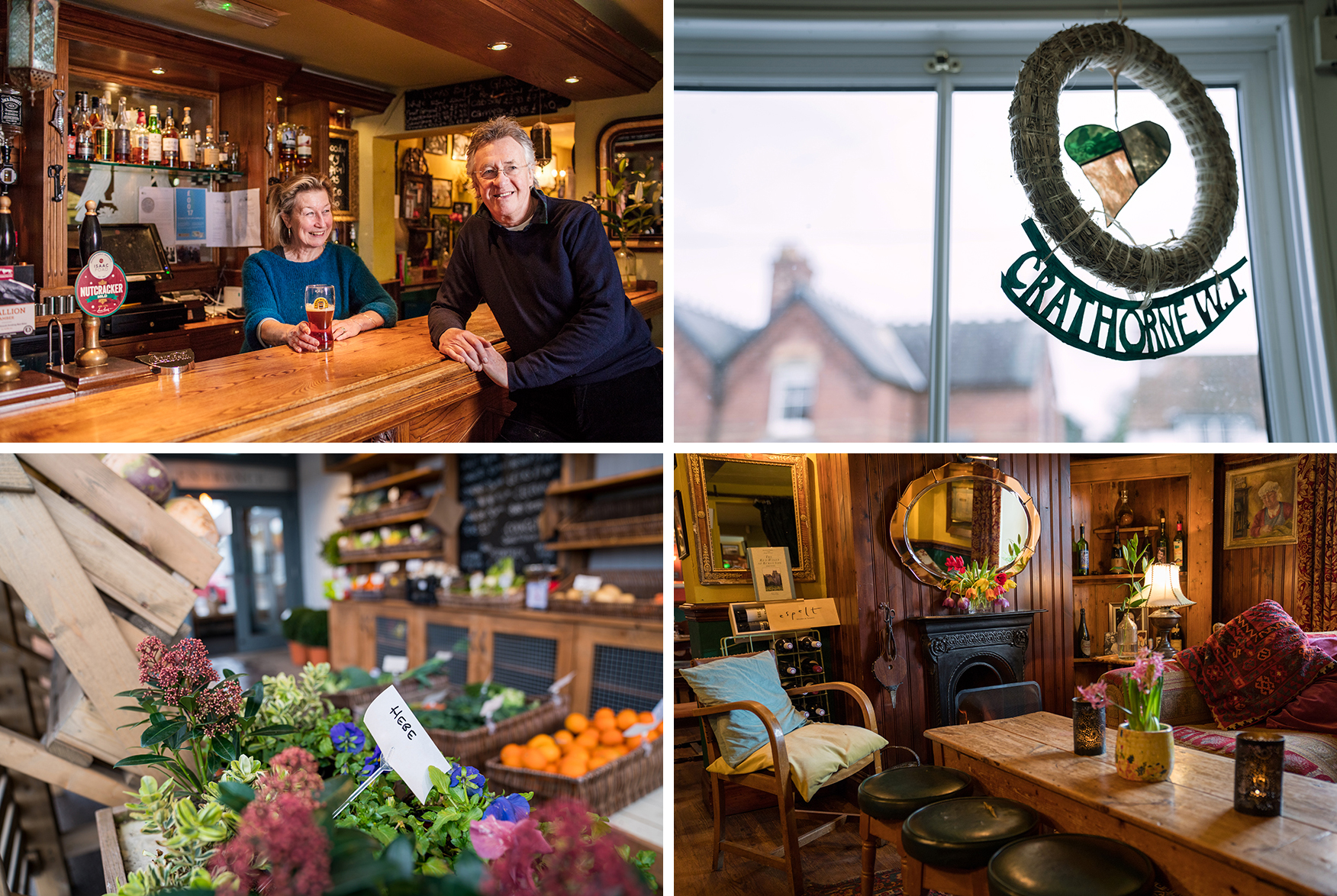
Down to business
With farming at its heart, Crathorne’s newest tenant, Five Houses Farm Shop and Kitchen, seems a more natural fit than the IT company that previously let the commercial premises. This firm vacated in June 2013, citing rural connectivity issues. The building’s Grade II Listing, relatively large space (3,700 sq ft) and broadband problems made it difficult to let.
That was until Anthony Kitson, an award-winning butcher with shops in Northallerton and Stockton-on-Tees, came along. He had driven by the former farmstead twice a day for decades on his way to and from his home in the neighbouring village of Hutton Rudby.
Like the McCoys, he is full of praise for Strutt & Parker’s Fieldsend. His family has been in the butchery business since the 1690s, so ‘we’ve dealt with a lot of agents in our time’, he says with a smile.
‘Right from my very first germ of an idea, Laura couldn’t have been more proactive,’ says Kitson, who insists that everything served in the café is made from local produce that can be bought from the shop. ‘Laura has quite a rare quality in being well thought of by everyone: the local community, the estate and the tenants.
‘I can’t say enough how useful it was to have somebody like her to bounce ideas around with. I’m not sure if it’s her, the Strutt & Parker ethos or the family, but it’s a recipe that works.’
The shop, which opened in September 2017, already employs around 30 local people and is proving so popular that a supplementary lease for additional car parking was needed. Annual sales in the region of £2 million are projected.
Anthony has been joined in the business by his sons Henry, 27, and Oliver, 26. The pictures of the three of them adorning the walls – together with the prizes won by the local livestock they source for the butcher’s counter – have echoes of the village post office. Five Houses may be on a much grander scale, and the photographs professionally taken rather than curly-cornered snaps, but the underlying feelings of pride and belonging at the heart of Crathorne Estate are just the same.
laura.fieldsend@struttandparker.com
thecrathornearms.co.uk
fivehouses.co.uk
Letting lessons
With Brexit looming, having diverse income streams will be vital for rural estates – so attracting and retaining commercial tenants could be key. Here’s how to make your properties more appealing to businesses
Don’t be afraid to allow individuality
If the Crathorne Estate hadn’t let Eugene and Barbara McCoy put their stamp on the village pub, it might still be closed.
Provide plenty of parking
The instant success of Five Houses Farm Shop and Kitchen soon showed parking to be inadequate.
Actively encourage tenants who share the estate’s ethos
The Crathorne Arms’ welcome to local farm workers and Anthony Kitson’s support of local food and farming make for more harmonious relationships.
Play to the building’s strengths
Broadband was relatively poor at Five Houses, so finding a user who didn’t rely on it so heavily was important while a long-term solution was found.
Ensure there are community benefits
Some tenants bring their own staff with them, putting nothing back into the local economy. Search out businesses that will create new jobs for local people and provide interesting new amenities.
Read more
This article originally appeared in Strutt & Parker’s magazine Land Business Spring/Summer 2018. Read the full magazine here.
